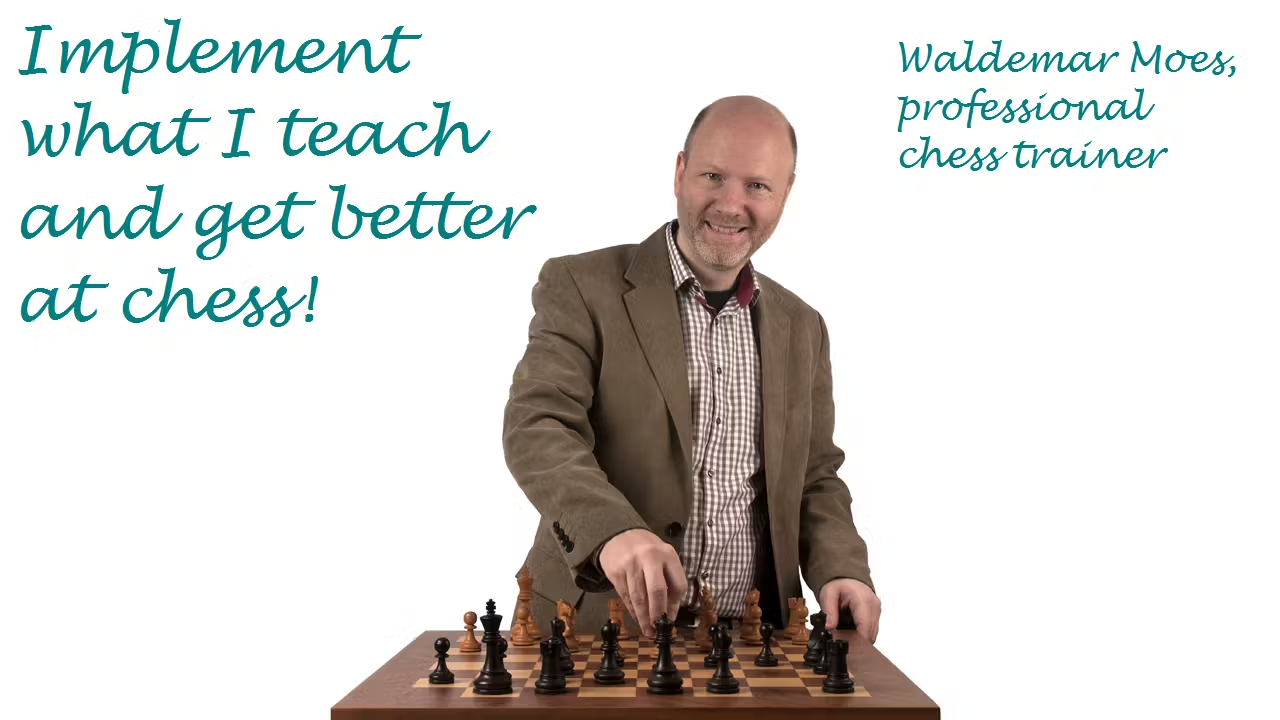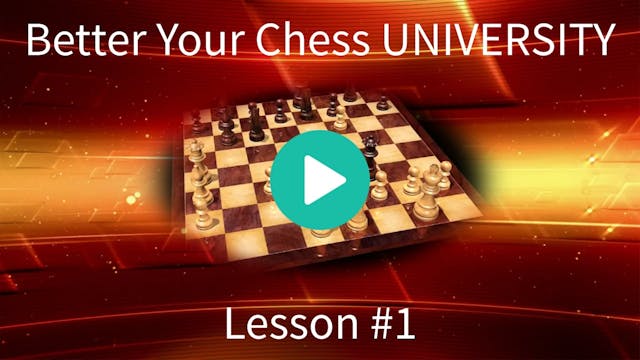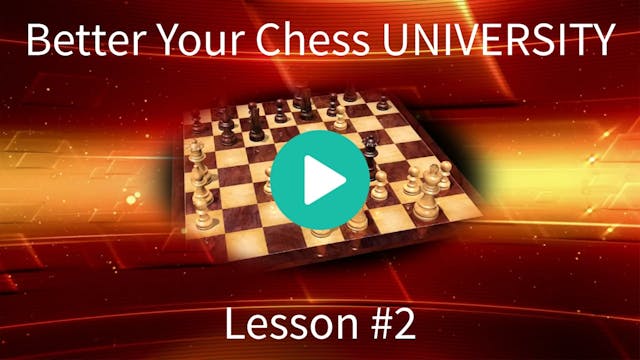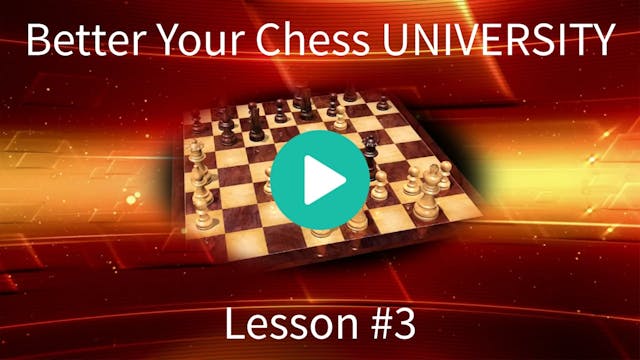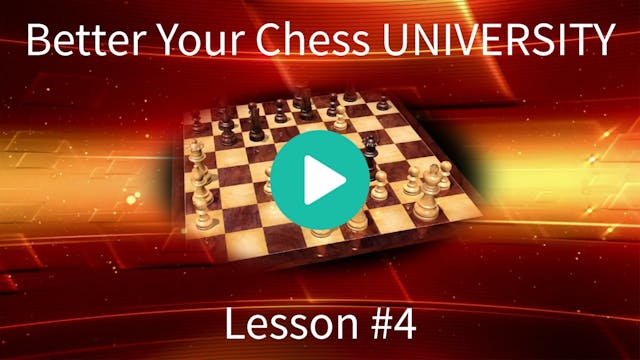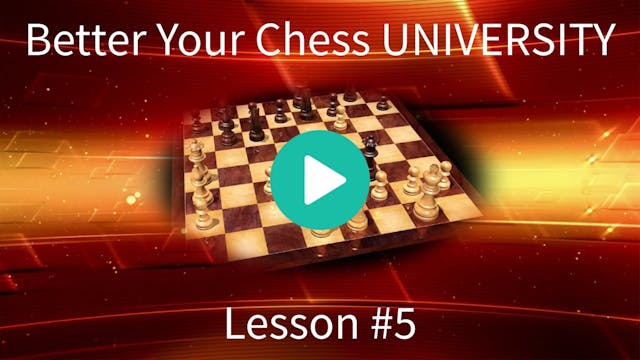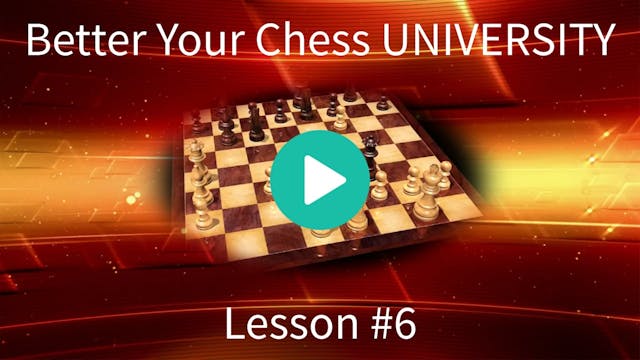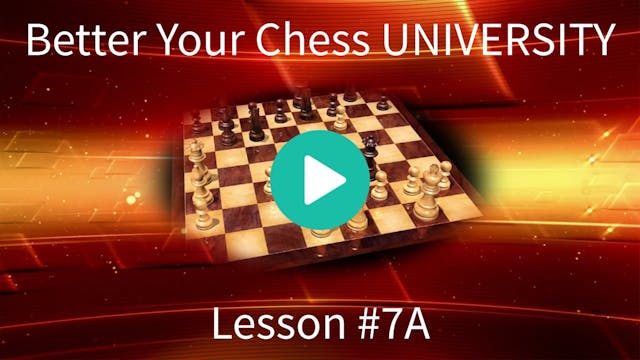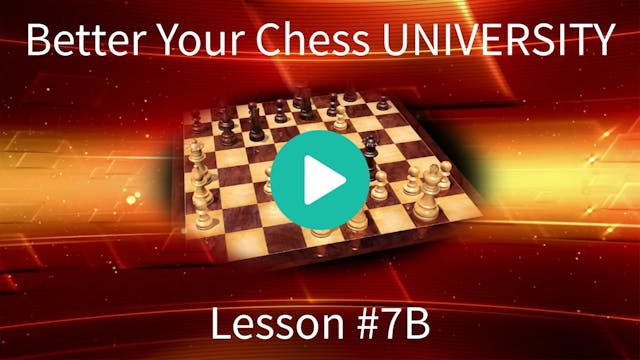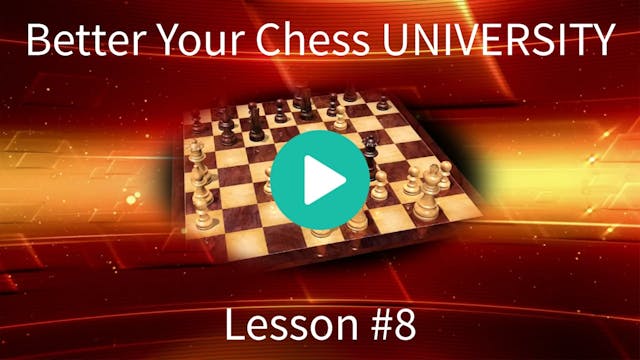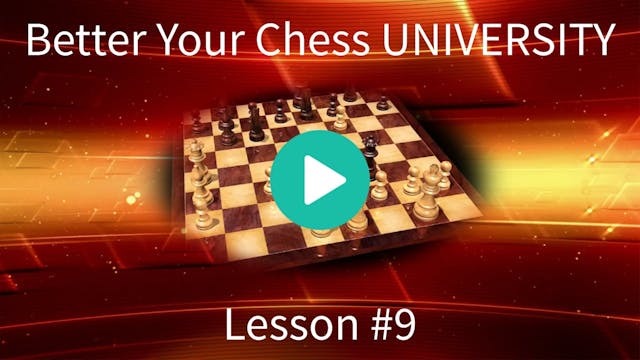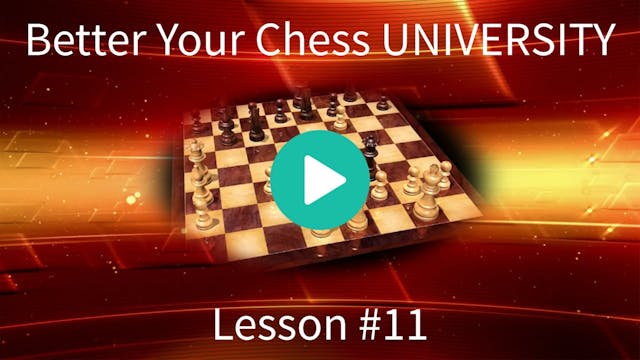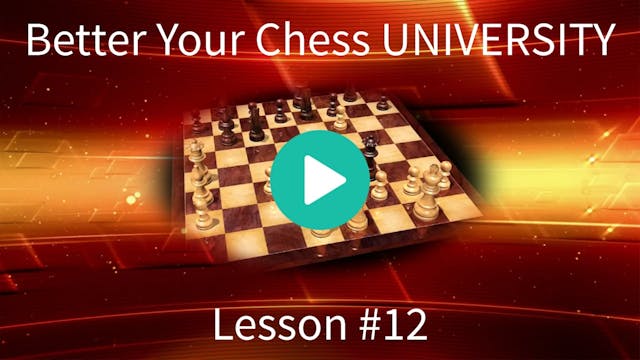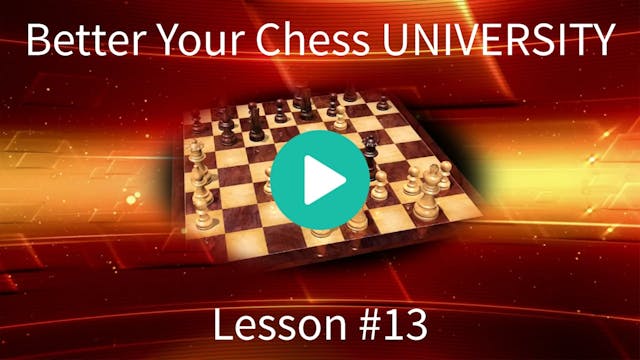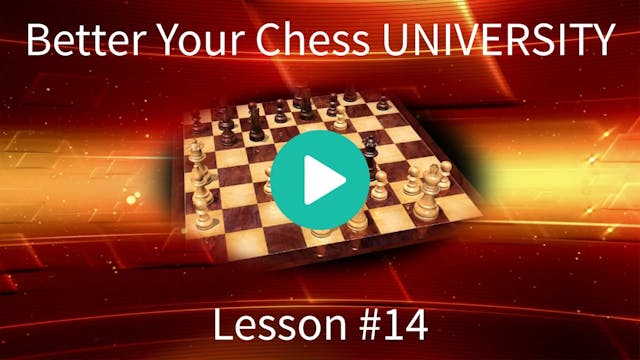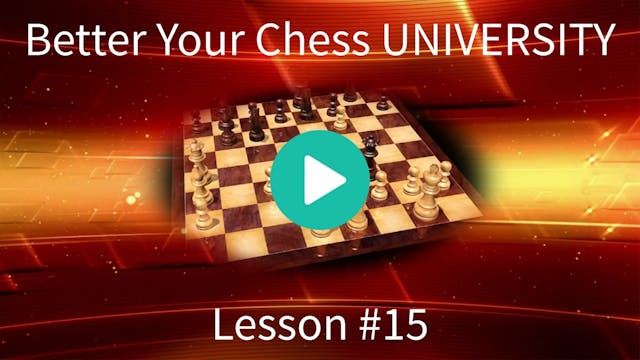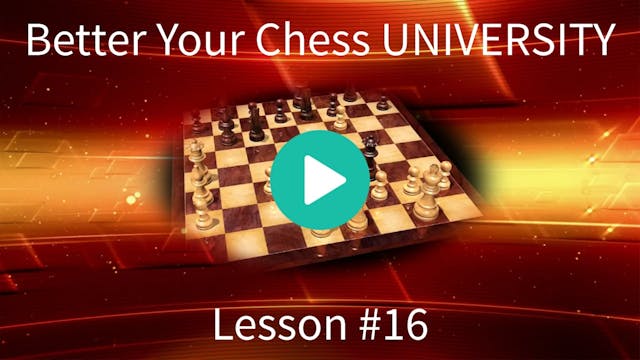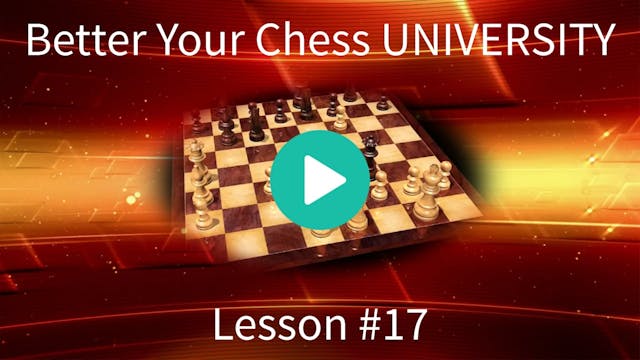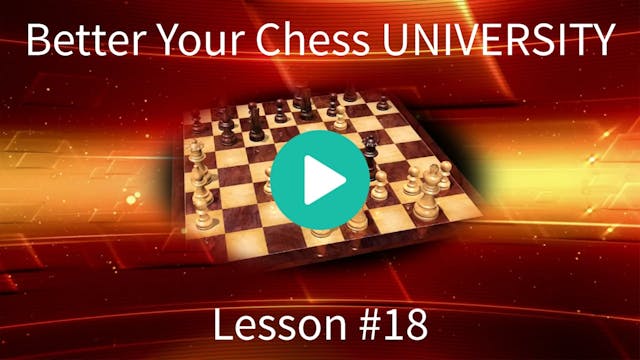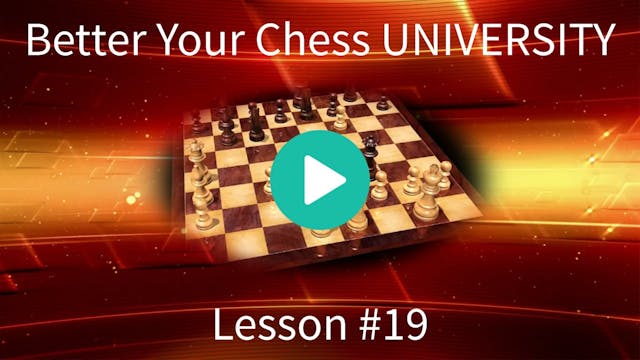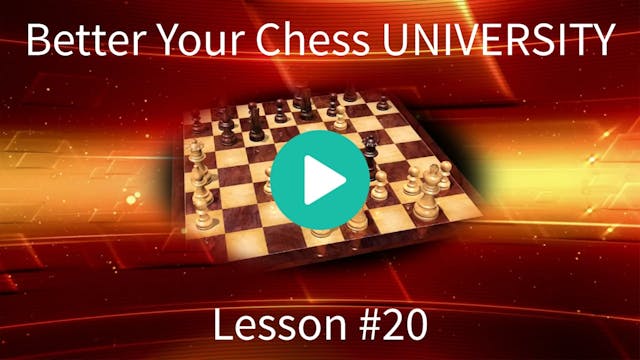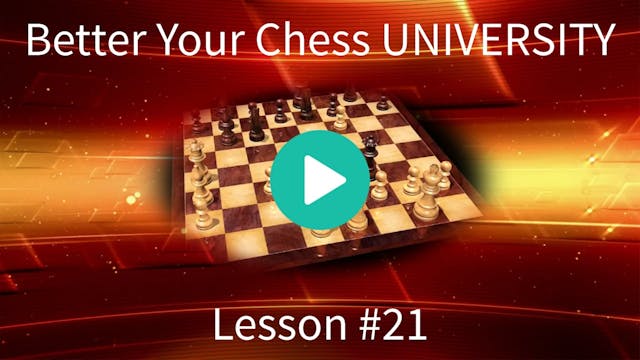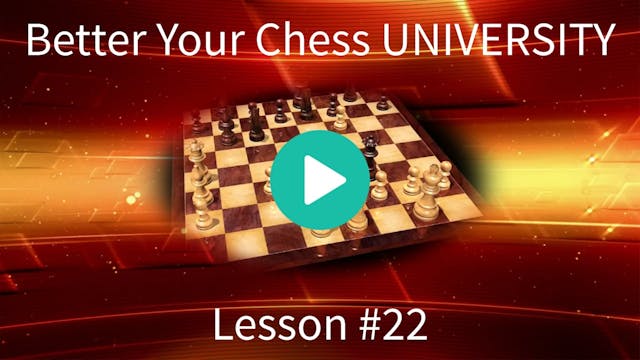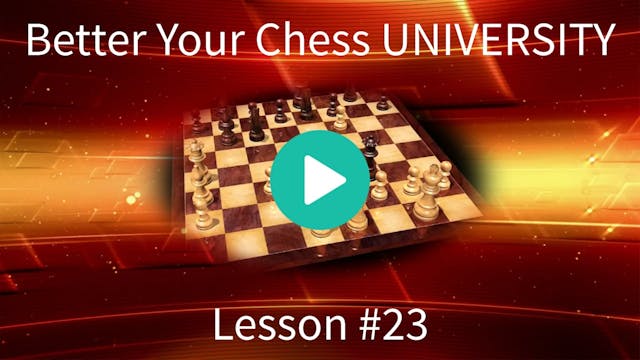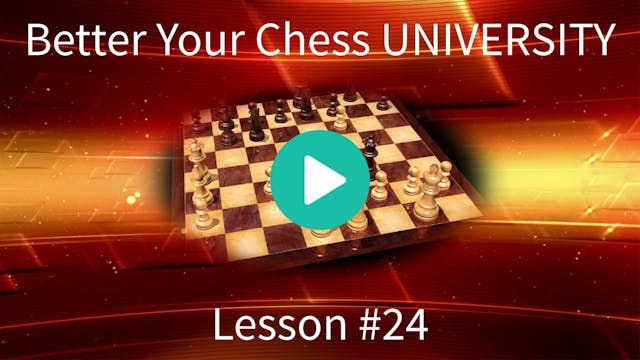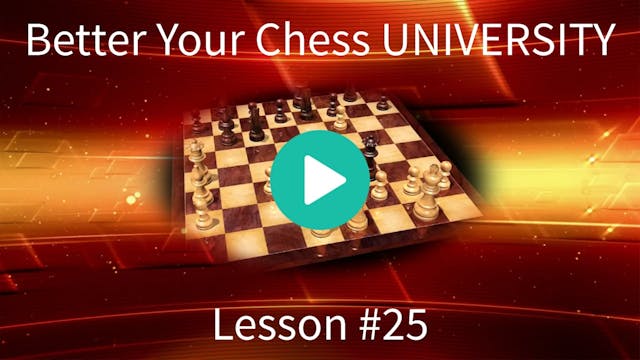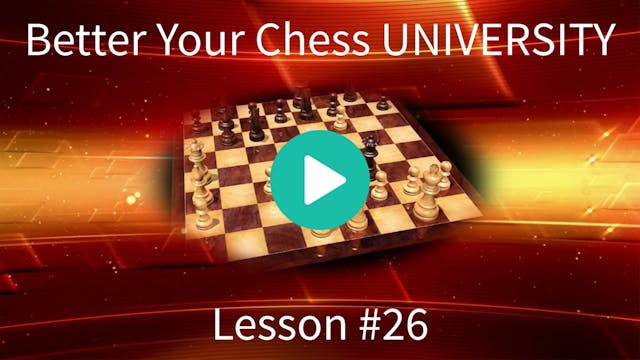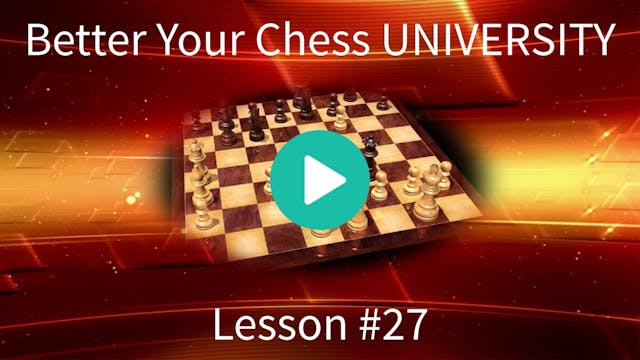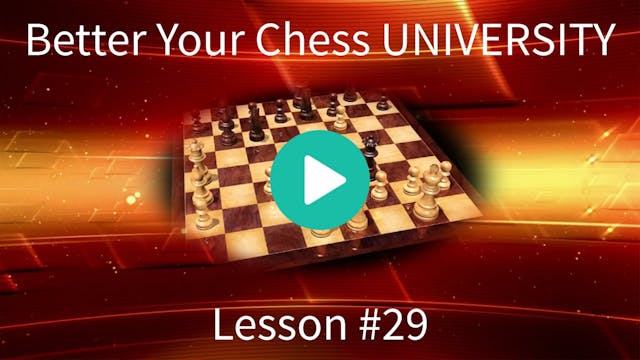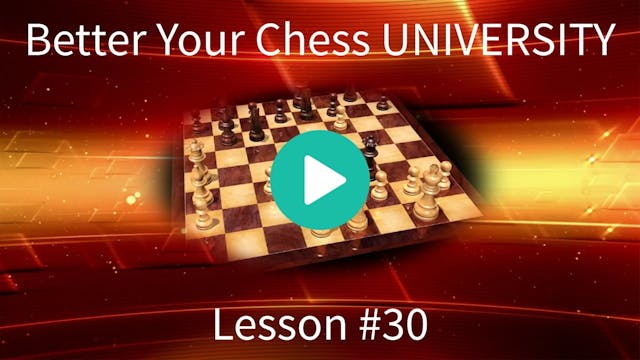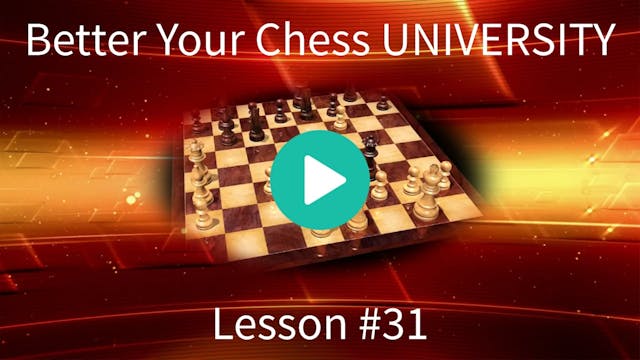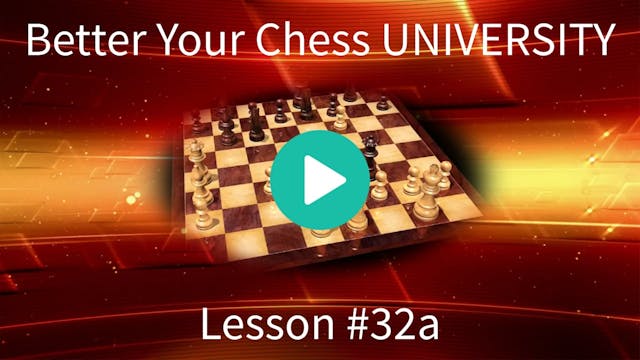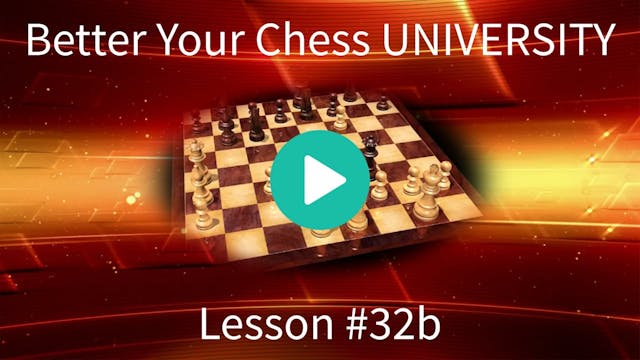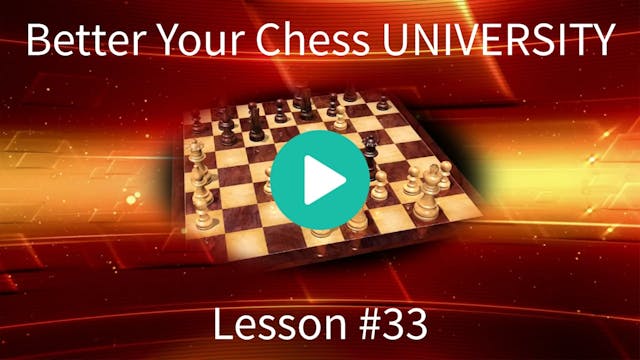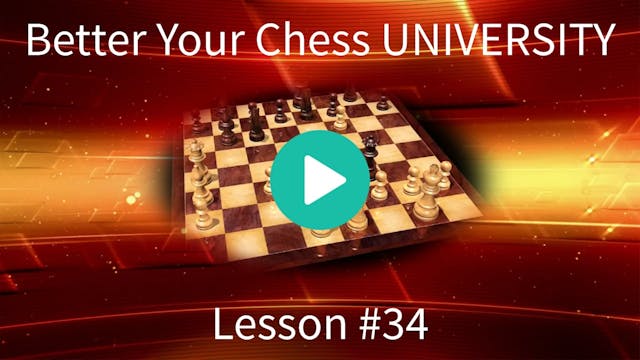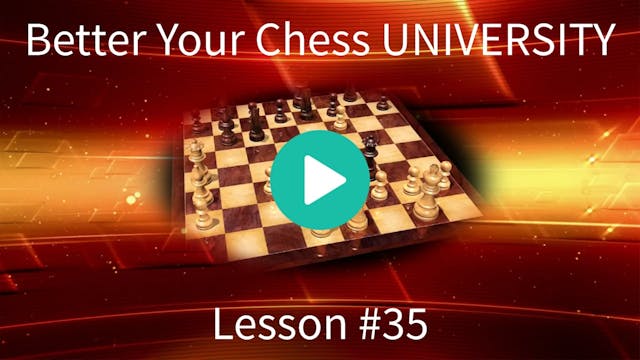A Chess Improvement Course In 35 Lessons
Contents:
- 35 video lessons (running time: 25+ hours)
- 2 PDF articles (lessons #10 & #28)
A comprehensive program in which the student learns to:
- How to appreciate the peculiarities of playing chess and use them to your benefit!
- How to breakdown and assess a chess position. It’s less complicated than you might think!
- How to get better at calculation, finally!
- How to get better at tactics, and be more creative!
- How to get better at formulating plans and keep an eye on your opponent!
- How to get better at implementing sound strategies and control the course of the game!
- How to improve your discipline, stamina and cool-headedness and be stronger!
- How to deal with stress, time trouble and inefficient thinking. No more silly mistakes!
- How to play the openings, middlegames and endings, and understand how they interconnect!
- And much, MUCH MORE!
-
Lesson #1: How To Tackle A Chess Position?
-
Lesson #2: Orientation On The Position
-
Lesson #3: The Analytical Approach (1)
-
Lesson #4: The Planning Approach (1)
-
Lesson #5: The Planning Approach (2)
-
Lesson #6: What’s The Threat?
-
Lesson #7A: The Analytical Approach (2)
-
Lesson #7B: The Analytical Approach (2)
-
Lesson #8: The Analytical Approach (3)
-
Lesson #9: The Planning Approach (3) – Small Plans
-
Lesson #11: How To Do A Tactical Breakdown
-
Lesson #12: How To Find Candidate Moves
-
Lesson #13: How To Calculate – Introduction & Falsification
-
Lesson #14: Falsification – Exercises
-
Lesson #15: How To Calculate – Assumption Is Our Glue
-
Lesson #16: The Mechanism Of Attack And Defense
-
Lesson #17: How To Calculate – Not Deep But Broad!
-
Lesson #18: Candidates – Thinking Outside The Box… Or Not?
-
Lesson #19: How To Play The Endgame – Introduction
-
Lesson #20: How To Calculate – Chess Is Not Checkers!
-
Lesson #21: How To Calculate – Which Candidate First?
-
Lesson #22: How To Play The Endgame – Some Misconceptions Taken Away
-
Lesson #23: The Planning Approach – Rules For Material Imbalances (1)
-
Lesson #24: The Planning Approach – Rules For Material Imbalances (2)
-
Lesson #25: The Most Fundamental Chess Knowledge (1) – Square Control
-
Lesson #26: The Most Fundamental Chess Knowledge (2) – The Critical Factor
-
Lesson #27: Good In The Beginning, Good In The Middle, Good In The End
-
Lesson #29: Common Mistakes In Chess - Example Game 1
-
Lesson #30: Common Mistakes In Chess - Example Game 2
-
Lesson #31: Common Mistakes In Chess - Exercises In Defending
-
Lesson #32A: Common Mistakes In Chess - Exchanging & Releasing The Tension (I)
-
Lesson #32B: Common Mistakes In Chess - Exchanging & Releasing The Tension (II)
-
Lesson #33: Common Mistakes In Chess - Omitting A Blundercheck
-
Lesson #34: Bg4/Bg5 Pins & h3/h6 Rook Pawn Moves - Part I
-
Lesson #35: Bg4/Bg5 Pins & h3/h6 Rook Pawn Moves - Part II
-
Lesson #28: Common Mistakes In Chess (Introduction).pdf
259 KB
-
Lesson #10: The Interplay And Use Of Phases & Approaches During A Chess Game.pdf
199 KB
